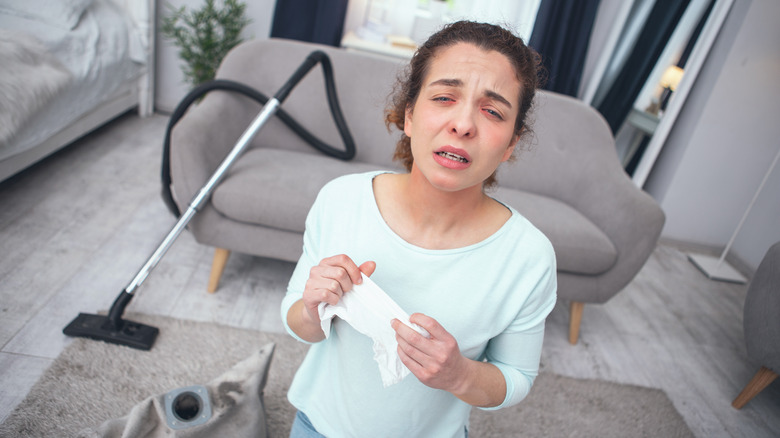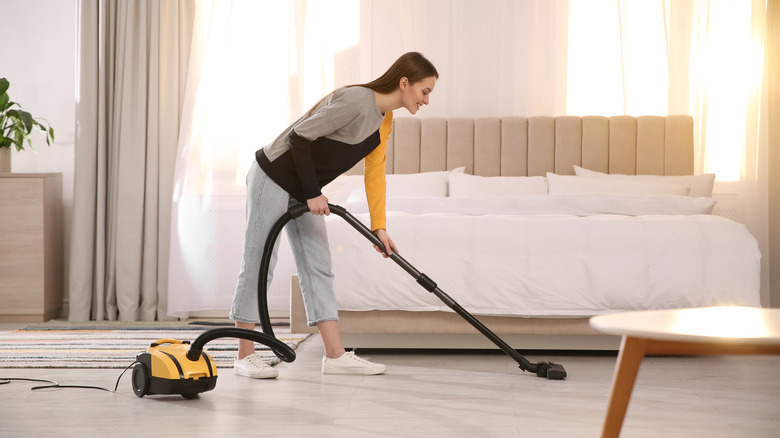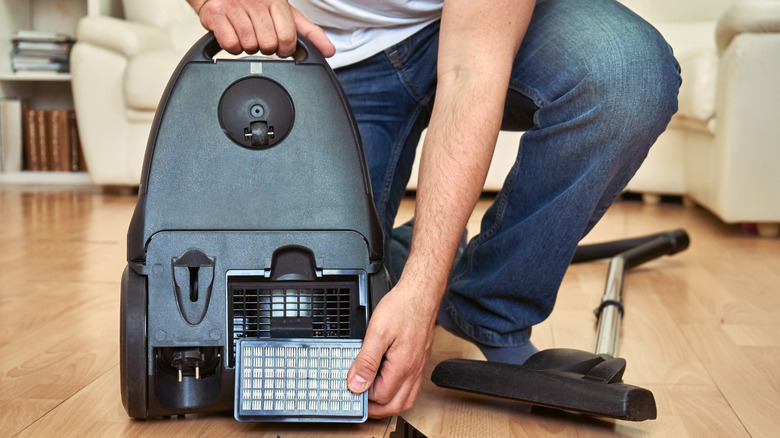The Sort Of Vacuum Cleaner You Need If You Have Dust Allergies
For those who suffer from severe allergy symptoms, there's no doubt about the importance of regular vacuuming to help keep dust at bay. One of the main problems with regular vacuum cleaners, however, is that a good measure of that dust you're trying to eliminate seeps back out of the unit as you're working. If you've ever had to dust your furniture after vacuuming, you know all about this. The solution? Using a true HEPA sealed and certified model can drastically reduce potentially harmful allergen emissions, according to Corvus Janitorial.
What about adding a regular HEPA filter or HEPA-type bag to the vacuum cleaner you already own? While they're advertised to help alleviate allergies, those add-ons aren't going to offer you the type of hermetically sealed system required for maximum allergen control. Consider acquiring an airtight vacuum for a better cleaning experience in your home, especially when it comes to getting a handle on allergy symptoms plaguing you or a family member.
How true HEPA filters work in vacuums
HEPA stands for High Efficiency Particulate Air, so this type of filter is designed to trap more dust than a regular filter. In fact, filters with this designation contain pleats of filaments, usually made of fiberglass, that not only catch but retain 99.97% of particles that enter a vacuum cleaner. This includes dust along with dust mites, pollen, mold spores, and a host of other tiny particles. All these things can cause problems for allergy and asthma sufferers when they're belched back into the air by a standard vacuum cleaner.
For HEPA filters to work at maximum efficiency, they must be part of a sealed system. Special gaskets and seals are incorporated to make sure that no dust-filled air can escape while the motor is running; all exhaust leaves the unit through the HEPA filter. These special units are called sealed HEPA or true HEPA, and if you're trying to eliminate allergens it's important to look for one of those designations when shopping for a new vacuum.
Other things to consider when shopping for a vacuum
Most major brands advertise vacuums with HEPA filters. As discussed, the problem is that many are not true HEPA models with sealed systems. The motors are not as strong, and since they aren't sealed, the allergy-causing contaminants you're trying to eliminate can escape as you're using the units. When shopping for a sealed HEPA vac, some brands to consider include Prolux and Miele. True HEPA vacs are usually more expensive than non-sealed models, but if someone in your home needs extra clean air due to allergies, they are well worth the investment.
Another thing to keep in mind is that you will eventually need to replace the HEPA filter in your sealed vacuum. At that point you'll find that HEPA filters are more costly than regular vacuum filters. The good news is that they tend to have a fairly long life. When used in homes, most last about two to three years before they need to be replaced. If you vacuum very frequently or live in an area where dust accumulates more prolifically, you may have to replace a HEPA filter sooner. Nevertheless, the reward justifies the expense when it comes to easing allergy symptoms.


